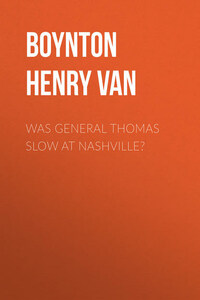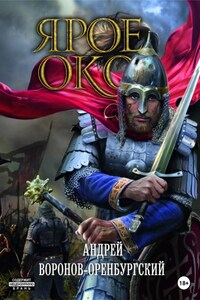A new generation has come upon the stage since our civil war. It has its own writers on the events of that struggle. Some of these, careful students as they are, make proper and effective use of the stores of material which the Government has collected and published. Others, stumbling upon interesting dispatches of notable campaigns, read them in connection with the ill-considered and hasty criticisms of the hot times which brought them forth, and, finding questions settled twenty years ago, but entirely new to themselves, they proceed to reveal them as new things to the new generation. By this process it has recently been announced that General Thomas was slow at Nashville. To give this echo of thirty-two years ago sufficient voice, several columns of dispatches – which a quarter of a century since formed the basis of discussions that demolished the theory they are now brought forward to sustain – are gravely presented as something new.
Nothing better illustrates this situation than the very familiar story of the Irishman who assaulted the Jew for the part he took in the Crucifixion, and upon being remonstrated with upon the ground that the event occurred eighteen hundred years ago, replied that it was nevertheless new to him, as he had only heard of it the day before.
That General Thomas was not slow at Nashville is ancient history. General Grant, who was the first to charge it, was also the first to withdraw the imputation, by declaring in his official report that at the time he had been very impatient over what appeared as unnecessary delay on the part of Thomas, “but his final defeat of Hood was so complete that it will be accepted as a vindication of that distinguished officer’s judgment.”
The ostensible reason for heralding Thomas as slow – so slow, indeed, as to require his removal and lead to an order for it – was that he insisted upon concentrating his infantry force and remounting his cavalry. Secretary Stanton declared that the delay would be till doomsday if Thomas waited for the latter.
A consideration of this most important, underlying, and controlling factor in General Thomas’s preparations brings up one of the most brilliant chapters in our war history, and altogether the most brilliant in the annals of cavalry operations.
In touching upon General Thomas’s persistence in getting his cavalry ready, it would be very natural for a surface student to quote Secretary Stanton: “If he waits for Wilson to get ready, Gabriel will be blowing his last horn,” and treat it as conclusive proof of Thomas’s dilatoriness and Stanton’s final opinion. But just far enough under the surface to escape the eyes of historical amateurs, lies the splendid and unparalleled fact that in eight winter days after the date of that dispatch General James H. Wilson, Thomas’s chief of cavalry, had impressed horses enough, with those furnished on previous requisitions, to raise the effective mounted force at Nashville from 5500 to 13,500, and that on the eighth day General Wilson went into action with 12,000 mounted men, and had besides one brigade of 1500 men engaged in an independent movement.
At this point a moment’s consideration of the real reasons which caused the outbreak against General Thomas, on the ground that he was slow, will not be out of place. At City Point it was the perfectly natural but sickening anxiety lest it should turn out that a great mistake had been made in letting Sherman march away to the sea, thus possibly opening the way for Hood to the Ohio. At Savannah it was the same fear, intensified by the consciousness that Thomas had been left with unprepared forces to contend against a veteran army which had stubbornly resisted both Thomas and Sherman during the hundred days from Dalton to Atlanta.









